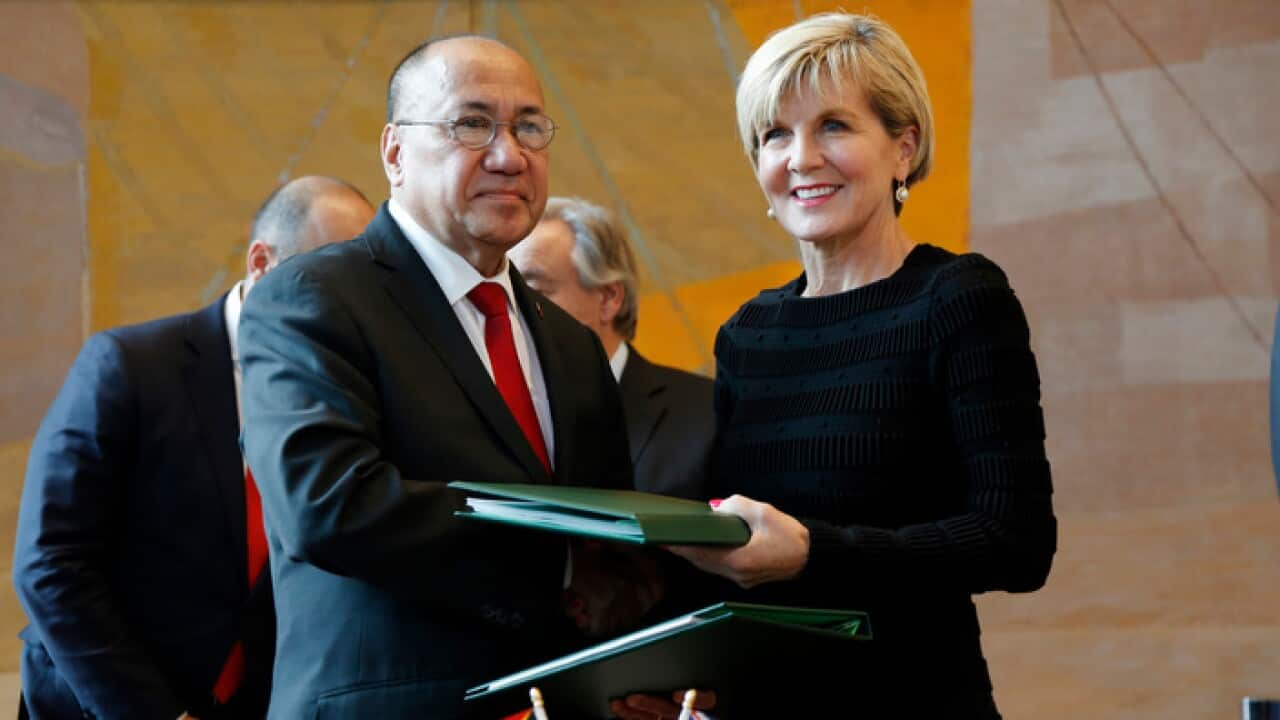We arrived in Timor Leste with former Australian Federal Police officers who hadn’t been back since they withdrew from then East Timor. They were forced out in the face of murderous Indonesian-backed violence trying to prevent a vote for independence.
Many of the officers didn’t know if the people they had worked with to set up the vote, and the villagers they were there to help protect, had lived or died.
The Australian police officers didn’t have a choice, they had to leave. They were all unarmed. Those like Don Barnby and David Savage, who were based out near the border with Indonesian West Timor, had withstood the intimidation. But when it was clear the vote was going to return a demand for independence, they were warned by the Indonesian police - who were meant to providing their security -- that they could no longer guarantee their safety.
It was a warning, they could be killed if they didn’t leave.
So they left, first to the capital Dili, and then in a mass UN evacuation with several hundred East Timorese, to Darwin.
For twenty years, most of the 52 Federal Police officers deployed in East Timor carried feelings of debilitating guilt for being part of a UN operation that swore it would not leave East Timor – only to withdraw completely after the vote. They felt they left them at the mercy of murderous militia.
Some 1400 people are known to have been killed, the real figure could be much higher.
Going back to confront these demons, and discover the truth of what happened to the people they left behind, was a big step – some almost didn’t get on the plane. But once they arrived amid tears of sorrow and relief, it was the reaction of the East Timorese that gave them closure.
Yes it was hard, many Timor Leste people died, the nation had been abandoned, and many civilians were brutally murdered – but the returning veterans were uniformly received as friends. They were told that they were instrumental in building the small nation, ending decades of brutal Indonesian rule and achieving its long-sought independence.
One of those watching closely was Jose Belo. As a young man he was a member of the resistance movement against Indonesian rule. He was in the bush with the fighters and part of the clandestine network moving through the towns and villages to arrange supplies. In the early nineties, his commander – now Timor Leste’s Prime Minister – ordered him to try to find foreigners who could help let the world know about the massacres, torture and repression they were suffering.
After teaching himself some English, he started following some of the few foreign tourists to see who might be sympathetic and safe. Then he started reaching out to foreign journalists and became one of the main conduits for journalists. Jose helped guide people getting in and out successfully with their reports of the atrocities occurring on Australia’s doorstep.
Jose has shared many stories of close calls, jail time, and the collective determination that one day they would be free.
Jose’s role was strategic – it was a deliberate attempt by the leadership to get global coverage of their cause. It worked. The stories fanned an international campaign and presented the facts to governments which would have preferred to look the other way – especially Australia which saw its oil, gas and security relationship with Indonesia as outweighing East Timorese demands for independence.
Jose played a key part in that and is respected among many East Timorese and foreigners for his role. It is a lower profile role than the better-known leaders but, in many ways, the international awareness and campaign he helped promote was absolutely fundamental to Timor Leste’s eventual independence.
He has gone on to become one of the country’s leading independent and investigative journalists – calling out corruption in the nascent administration, leading to sackings and prosecutions. It doesn’t always make him popular with the leaders but there is a respect and while he is able to operate freely the signs of hope for our newest neighbour.



